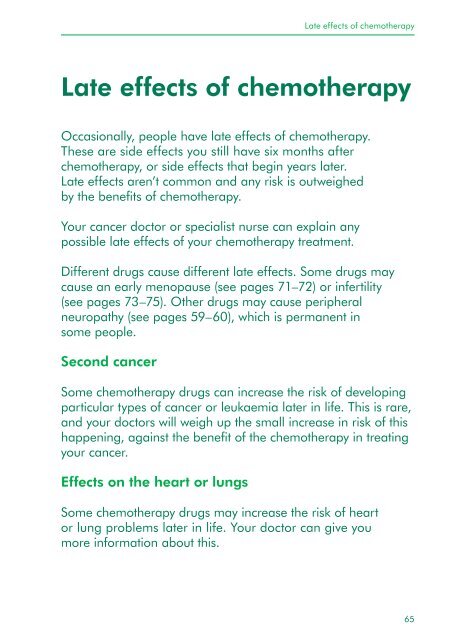Understanding chemotherapy - Macmillan Cancer
Understanding chemotherapy - Macmillan Cancer
Understanding chemotherapy - Macmillan Cancer
You also want an ePaper? Increase the reach of your titles
YUMPU automatically turns print PDFs into web optimized ePapers that Google loves.
Late effects of <strong>chemotherapy</strong>Late effects of <strong>chemotherapy</strong>Occasionally, people have late effects of <strong>chemotherapy</strong>.These are side effects you still have six months after<strong>chemotherapy</strong>, or side effects that begin years later.Late effects aren’t common and any risk is outweighedby the benefits of <strong>chemotherapy</strong>.Your cancer doctor or specialist nurse can explain anypossible late effects of your <strong>chemotherapy</strong> treatment.Different drugs cause different late effects. Some drugs maycause an early menopause (see pages 71–72) or infertility(see pages 73–75). Other drugs may cause peripheralneuropathy (see pages 59–60), which is permanent insome people.Second cancerSome <strong>chemotherapy</strong> drugs can increase the risk of developingparticular types of cancer or leukaemia later in life. This is rare,and your doctors will weigh up the small increase in risk of thishappening, against the benefit of the <strong>chemotherapy</strong> in treatingyour cancer.Effects on the heart or lungsSome <strong>chemotherapy</strong> drugs may increase the risk of heartor lung problems later in life. Your doctor can give youmore information about this.65
















